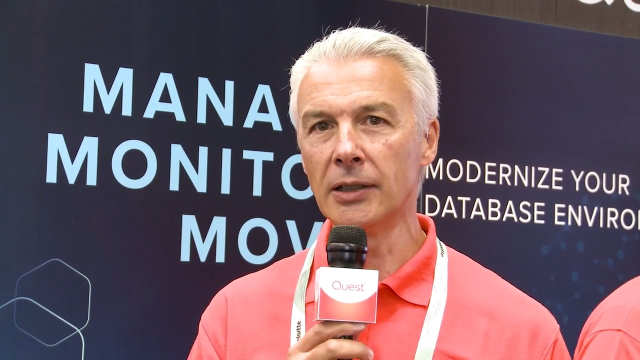Continuous Database Operations for Your DevOps Infrastructure
 03:12
03:12
Related videos
Modernize database change management to support DevOps
In this video, Sr. Solutions Product Marketing Manager, John Pocknell, talks to Computer Business Review (CBR) about database management in the context of DevOp...
04:41
Mastering Database DevOps: Session 5 – Recap and Conclusion
Session 4 of Business Reporter’s masterclass series on DevOps by Quest revealed how to safely move Oracle production data to other databases – without any downt...
03:44
Mastering Database DevOps: Session 4 – Efficient Data Movement
Session 3 of Business Reporter’s masterclass series on DevOps by Quest discussed how to mitigate the potential performance impacts introduced by faster release ...
07:47
Mastering Database DevOps: Session 3 – Monitoring the DevOps Pipeline
Session 2 of Business Reporter’s masterclass series on DevOps by Quest talked about how to modernize database change management to achieve agile success and res...
08:40
Mastering Database DevOps: Session 1 – Market Dynamics
How do successful companies grow market share and outpace competitive threats? By embracing DevOps to respond faster to market dynamics. In Session 1 of this Bu...
06:11
How to integrate SQL Server into your CI/CD pipeline
Learn the key requirements for integrating SQL Server into your DevOps CI/CD environment. In this video, we show you how Quest helps you integrate performance m...
02:15
Mastering Database DevOps: Session 2 – Database Development and Continuous Integration
Session 1 of Business Reporter’s masterclass series on DevOps by Quest covered the prevailing market conditions driving businesses to become more agile. In S...
07:33
The Challenge of Database DevOps
Under pressure to release application changes faster? This can be challenging when application changes depend on database changes. But what if you could prevent...
01:45
How to Integrate Database into Your DevOps Infrastructure
DevOps is critical to your organization’s success. But bringing your database operations into your DevOps infrastructure can be challenging. What if you could u...
02:00
